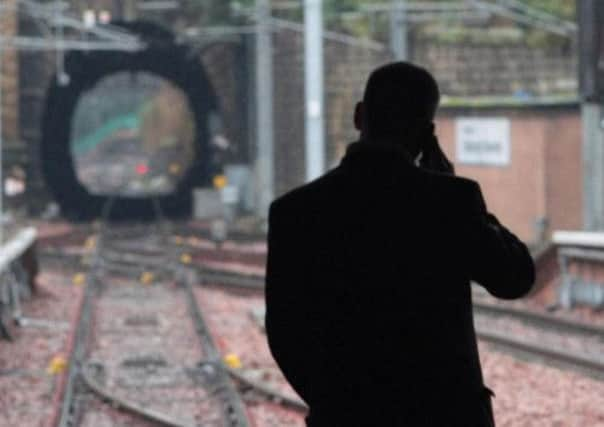Richard Wellings: Taxpayers deserve better deal over railways


But the Government faces a difficult dilemma. Under the current system, if fares are not raised, the burden on taxpayers increases. Annual subsidies are estimated at £4bn a year, though the real figure is much higher when spending on Crossrail and increases in Network Rail’s debt are factored in. This hefty tax bill damages the economy and discriminates against those who rarely travel by train.
Taxpayers are clearly getting a bad deal, but it is also difficult to argue that passengers obtain good value for money. Britain has some of the most expensive rail fares in Europe and overcrowding is a serious problem on some peak services.
Advertisement
Hide AdAdvertisement
Hide AdThe combination of high fares, high subsidies and often poor service suggests something has gone very badly wrong with rail policy.
A large part of the problem stems from the history of privatisation. It was a good idea to remove the railways from the state sector, but rail privatisation was botched. Politicians were afraid that if they left the railways to market forces, loss-making services would be cancelled and uneconomic lines closed. The political fallout would be considerable.
The Government has therefore maintained tight control over the industry. Rail firms – though nominally private – are to a large extent funded and directed by the state. They are essentially sub-contractors of the Department for Transport. One result has been a lack of entrepreneurship. The innovations that have driven costs down in other sectors – such as low-cost airlines – have been almost entirely absent on our heavily regulated railways.
But an even more serious problem is the level of bureaucracy. A hugely complex structure has been imposed on the industry. Ownership of the track and trains is separated and numerous companies and regulators manage different aspects of the business. Armies of well-paid consultants, lawyers and civil servants have been employed to manage the railways.
Advertisement
Hide AdAdvertisement
Hide AdMinisters ignored the lessons of the 19th century. The great rail entrepreneurs quickly realised their businesses would be more efficient if the same company owned the track and operated the trains. Taxpayers were not bankrolling the railways in those days, so unnecessary layers of bureaucracy meant lower profits.
If the Government is serious about obtaining better value for money for taxpayers and passengers, it therefore needs to undertake radical reform.
The first step is to simplify the structure. Network Rail – the bureaucratic organisation that currently manages the infrastructure – should be abolished, with chunks of the network sold off to train companies. These firms would then be free to merge and create larger enterprises.
Perhaps a private version of British Rail would emerge eventually. Alternatively, there could be a small number of regionally-based operations, as seen before nationalisation in 1947. Such decisions must be left to the market. The structure should be based on commercial imperatives rather than the preferences of senior officials and politicians. Such a strategy would reintegrate the railways and deliver massive efficiency gains. There would be significant scope to cut both fares and subsidies, particularly if private firms were free to rationalise the most heavily loss-making parts of the network.
Advertisement
Hide AdAdvertisement
Hide AdThe policy would face vigorous opposition, however. It would go against the grain of European Union directives that prohibit genuine private ownership of rail infrastructure. Accordingly, there is a strong case for rescinding these regulations in any renegotiation of the UK’s relationship with Brussels.
Even more powerful opposition could come from within Britain’s rail sector, which has grown fat on government handouts, but loss-making projects built for political reasons need to be consigned to history. At the same time, the HS2 high-speed rail should be abandoned. The evidence is now overwhelming that this will be unbelievably costly to the taxpayer while delivering incredibly poor value.
It’s shameful that, at a time of such financial difficulty for many families, the Government is caving in to lobbying from businesses, local councils and self-interested politicians more concerned with winning votes than governing in the national interest.
Reforming the railways will certainly not be easy, but challenging entrenched interests would bring substantial long-term rewards by delivering lower taxes and cheaper fares. Ministers should have the courage to put the interests of taxpayers and passengers above the interests of the rail industry.
*Dr Richard Wellings is head of transport at the Institute of Economic Affairs think tank (www.iea.org.uk).